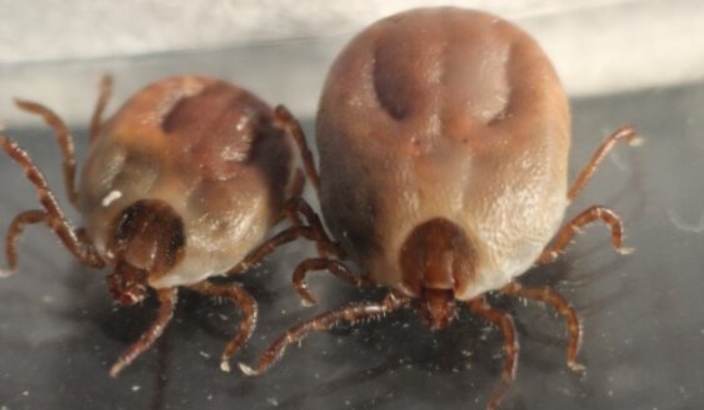Tick trouble? Farmers encouraged to support nationwide research

Adult cattle ticks in different feeding stages. Farmers are urged to support AgResearch's nationwide effort to track and control tick spread. Photo: Luis Carvalho.
Farmers nationwide are being encouraged to act early against cattle ticks and support new research by AgResearch’s Parasitology team, which is asking cattle farmers to collect tick samples and track their spread.
The New Zealand cattle tick (Haemaphysalis longicornis) was first reported in the early 20th century and is now well-established across much of the North Island and northern parts of the South Island, particularly Marlborough, Tasman and Golden Bay.
Cattle ticks are more than a nuisance—they threaten animal health, spread theileriosis, and pose a biosecurity risk due to their ability to transmit a range of pathogens. Overseas, they carry harmful pathogens not yet in New Zealand, highlighting the need for strong surveillance.
To get ahead of the problem, AgResearch has launched a new project to genetically characterise tick populations across the country.
“The goal is to map the genetic diversity of H. longicornis in New Zealand,” Luis Carvalho, senior scientist on the tick project explains.
“This will help us understand tick spread, compare them to overseas populations, and improve control methods. It also builds a nationwide picture of tick movement and provides a baseline to detect any new species that may arrive.”
One thing that makes this research easier for farmers to support is that tick collection is done from pasture—not directly from animals.
“About 80 per cent of a tick’s life cycle happens in the pasture,” says Carvalho. “We don’t need you to yard stock or disrupt your normal farming operations. We can collect samples from vegetation where ticks are active.” Carvalho encourages farmers not to wait until ticks become a major issue.
“One tick can lay around 2,000 eggs,” he points out. “If you’re seeing ticks on your stock, you need to act early—before the snowball effect causes their population to explode.”
“By collecting ticks from farms nationwide, we’re gaining valuable first-hand insights,” says Carvalho. “This helps us identify gaps in current control strategies and develop better solutions going forward.”
He says any new approaches would be complementary to existing chemical treatments and pasture management practices, rather than replacing them.”
If you have ticks on your farm, or would like more information, Dr Luis Carvalho would like to hear from you: [email protected].
